Brand Belonging And The Journey From Apple To IBM with Nancy Kramer
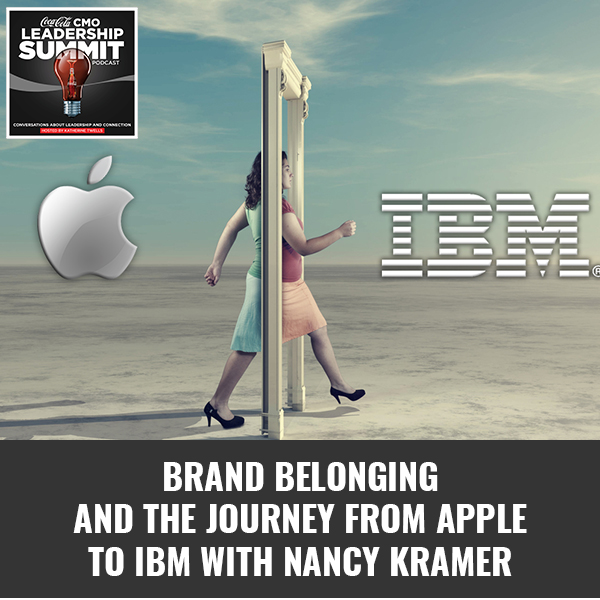
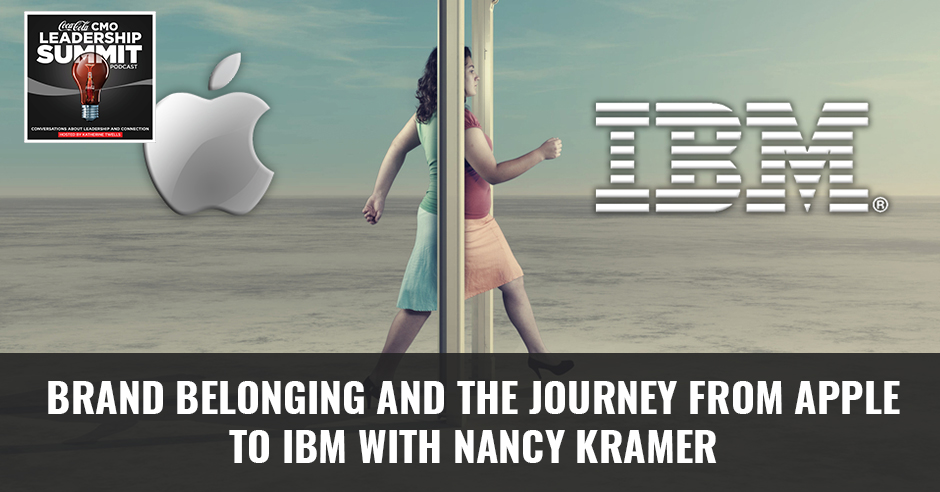
Moving from Apple to IBM, Nancy Kramer shares about brand belonging and her journey towards becoming a Chief Evangelist at IBM iX. Starting from her origin story, she lays down her upbringing and history that led her to where she is now. She speaks about the individual’s grit and having that ability to take over, learning from one’s mistakes as well as others. She also shares about her days with Apple under Steve Jobs, highlighting the great lessons she learned. Imparting as well some inspiration to leaders, she talks about the importance of being able to lead yourself before leading others.
—
Listen to the podcast here:
Brand Belonging And The Journey From Apple To IBM with Nancy Kramer
I’m going to interview Nancy. We’re going to get into some personal stuff too. We bring our whole selves into this. We did the personal and professional check-in. I was on a panel at one point and I talked something about how we traverse the continuum between badass and hot mess. Where one day, everything is a disaster and then the next day, I’m like, “I totally got this.” Our speakers come up here and you’re like, “They have it all under control,” but we don’t because we’re all trying to figure it out. That’s why we’re here. I’m going to start with my first question a little bit about you and your upbringing and your history. What was your childhood like? How did that shape you? A little bit about your background
Origin Story Of Nancy Kramer
I was born in Columbus, Ohio. I’ve lived in Columbus my entire life. I’m a product of the Midwest. I flew down here for a 50-minute flight. I was a very curious young girl. I was talking with the former editor of the Harvard Business Review and he said, “I find that people from the Midwest generally fall into two categories. Either they’re highly parochial or they’re very curious about the world out there because they’re in the Midwest and perhaps an inferiority complex or something like that.” I definitely was in the latter category, very curious. I spent a tremendous amount of time growing up in the library. I didn’t have air conditioning where we lived. I lived in a 1,000-square foot home. I’m a first-generation college graduate. I had to pay my way through school in order to go. I didn’t know that there was any place to go besides Ohio State because it was three miles away from my house. It was Ohio State, Ohio State or Ohio State. I spent a lot of time in the library escaping the summer heat and humidity. I would surround myself with books laying on linoleum floor. I found myself being gravitating toward books about places that was far away from Columbus, Ohio that I could imagine. I found myself loving to read about Africa. I loved the animals. I thought about being a vet when I was a little kid. My mother didn’t work. She was a stay-at-home mom. I would come home from school every day. I went to a Catholic school and I would say to her, “What did you do all day?” Because it seems super uninteresting for me. I’m sure she wanted to slap me because this is when people iron sheets and things like that.
My father worked for Keebler. He was in the food business. I worked my way through school working at Kroger as a cashier. I’m very familiar with the food business. I was interested in Africa. When I went to school at Ohio State for my foreign language requirement, I took Swahili because I was curious about Swahili having read about Africa. When you think about it and then do it, it’s a very powerful moment in our lives. For me, my Swahili teacher encouraged me to take a trip to Africa. In 1977, I went to Africa. I went to Kenya by myself, not on a tour. I didn’t travel with anyone. It was me, myself and I and that was transformative. That was such an important pivotal point in my life to know that I could think about something and make it happen. It was incredibly empowering. Growing up in a house where it was a very strict Catholic household, my mother was a convert which makes it uber-Catholic, there are a lot of don’ts and should nots. In the Catholic Church, there are a lot of open wounds and a lot of blood. People hanging from crucifixes and a lot of horror. You go into other churches and there’s a nice cross but in the Catholic Church, these people have been stabbed and stuff, which freaked me out as a little kid. A kid from the Midwest dreamt about a whole bunch of things. I found my way to school at Ohio State, a first-generation college attendee. I found myself in Kenya. I still have the pictures that I took on that trip framed in my office. They’re a reminder to me on a daily basis that when I dream about something, I can do it. That was a little bit about me and my childhood.
The Individual’s Grit And Working At Apple
Ron talked about think, do and say. You thought about it, you did it and you’re talking about it. A lot of people dream of things, but they don’t do it. Everyone in the audience is extremely accomplished, but I bet all of you have dreamed of something you wanted to do and you have it for some reason. It’s interesting what is it about individuals that have that grit and that ability to go take over. Clearly, you took that dynamic within yourself and then you turned it into a business venture that was transformative. You started your own company. You first client was Apple. Let’s get a little client. Tell us about that. What happened when you started the company? How was it working with Apple at that stage?
We learn from our own mistakes and lead people. Other times, we learn from watching others struggle. Share on XTo your point about what drives us, in a lot of ways, my mom drove me. In a lot of ways, I’ve lived my life and I didn’t want to be my mom. That happens sometimes and I’m trying hard for that not to be the case with my three children. That, plus the curiosity are the two components that still to this day on some levels drive me, if I’m very honest with myself. When I started the business, it was 1981 and Apple was a startup practically. It had just gone public. Steve Jobs and I are the exact same age. I was very curious about Apple. I felt as though it was interesting to learn about this company that had a mission. We’ve talked a lot about purpose. The purpose of the company was to democratize access to information in an era when computers were kept in another room, away from human beings. This idea of a personal computer was not even on anyone’s mind. It was a new way of thinking. It was the new billion-dollar brand, a completely different way of thinking. That very much appealed to me. It’s a very weird, serendipitous story that I was in media sales for a radio station. I met two guys that were manufacturer reps for a bunch of consumer electronic products. They were clients of mine and one thing led to another.
Apple was one of their lines that they were repping. The three of us started talking about this idea of putting together a company to help their retailers with their marketing and advertising because in 1981 and personal computers, there was no expertise in it. We wrote a business plan and took it to Apple. They gave us seed funding to start the business. They said, “We’ll pilot this for a year and we’ll see what happens. If it flies, then great. If it doesn’t, we’ll shut it down after a year.” I quit my job and I started the business. We were off to the races. It was at first designed to serve, as field marketing activities is what it was. How to sell product into the retail channel and how to sell it through to the end user. Originally, it was just a five and a half state area in the Midwest around Ohio. September 14th, 1981 was the date of the company opening and by December and January, Apple in Cupertino had seen that there was something happening here that had some impact on their revenue. I made my first trip to the corporate offices in Cupertino and started helping them with their co-op advertising and field marketing program for the United States. That led to a whole series of things that we did for them for the better part of two decades.
I’m going to ask you about Steve Jobs. How ironic is it? You remember the 1984 ad with the whole premise of that ad with the woman running in? It was almost like against idea. Many years later, here you are with IBM. It is so radically different. When we think about what we’ve heard from Ron, Peter and Scott about how you have to change your paradigm and disrupt your patterns, these are examples of companies that have disrupted their patterns. If they didn’t, they would not be doing what they’re doing now, which is amazing. I’m sure people are a little bit curious about Steve Jobs. He is this cultural figure and you had that up-close personal time to work with him. What was that like and how did that shape you now? What did you learn from that experience that you use now?
He was also very curious, very focused and very disciplined. Without a doubt, one of the most brilliant people that I’ve ever met. At the same time, he was a highly flawed individual. I finished the book that his first daughter, which he had disowned or disavowed was his and it was very troubling, but all the things that I could see in Steve. Sometimes interacting with someone like that, you learn what things you want to do and what things you don’t want to do. The idea of a purpose and being focused on a purpose was something that I certainly learned from him. The way that he often treated people, I felt as though it wasn’t very good and shut people down. If he wasn’t at the epicenter of it, things didn’t move forward. That changed when he came back into the company in 1997, 1998.
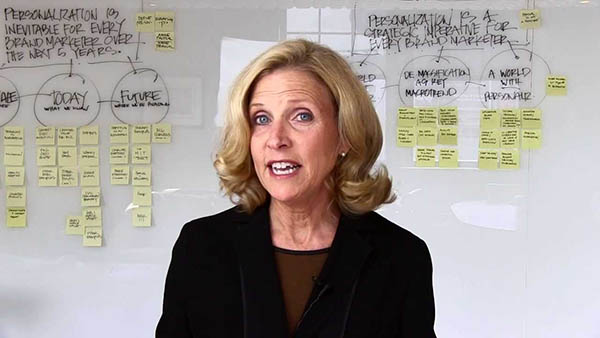
Brand Belonging: A lot of people dream of things, but they don’t really do it.
He was in his twenties and had so much maturing and experience to gain. The fact that he was kicked out of the company, I was there that day and it was awful. It was such a good thing for him and for the technology because the underpinning of the next computer operating system is very much what is running Apple now. When he came back in, he brought that in. The work that he did while he was gone is still very much alive within Apple. He was such a part of my personal narrative. We were hosting a client event the day that he died. I was at the Ohio State football game with my children. I was looking at the O in the center of the field. I was standing right there when my friend from Adobe, who had previously been at Apple, came over and said, “Steve, just passed away.” I will never forget that moment. I’m having goosebumps thinking about that moment.
Chief Evangelist Of IBM iX
We are going to talk about mistakes and when we make mistakes, what do we learn from this? We are indeed flawed and we’re learning. Sometimes we learn from our own mistakes and leading people. Other times, we learn from watching other people struggle with the way they’re wired and how to do that, but certainly it made a huge impact. You see someone of such brilliance but even struggling maybe with the cultural leadership side of things. Shifting gears slightly, your title is Chief Evangelist. What does that mean?
I was inspired by Guy Kawasaki who’s a friend of mine. He was the chief evangelist for the Macintosh. He was responsible for working with different software companies to try to encourage them to write software to go with the Macintosh and nobody felt as though the Macintosh was going to be a commercial success. It was challenging to get people to support it and invest in it. That was Guy’s job and Guy is a friend. I worked directly with his wife, Beth. I wasn’t sure what I was going to do when I went through this process. I had this company for 35 years. I have an office in Columbus, New York and Chicago and at one time in San Francisco. I grew it to be one of the largest independent digital agencies in the country. I wasn’t sure what I was going to do. There was a woman who became a business partner after we went through dot-com bubble bursting where we went through a very trying situation where our business plummeted by 70% in 90 days. I was going through a divorce at that same time.
Talk about a challenge. Talk about facing where your entire life is coming to a place of, “I’m not so sure I can get out of bed tomorrow,” type of place.
Leaders need to lead themselves. Share on XThere was that point in 2000. It was challenging. I was a journalism major in college. I don’t have any business degrees. Going through that situation when I had prided myself in running the business very fiscally and responsibly. Always having retaining earnings and never laying anyone off and then to have that happen where clients disappeared. They owed us millions of dollars. They didn’t pay the money and the business plummeted by 70% in 90 days. I was in the middle of a divorce and my three children became completely 100% dependent on me. Navigating that was challenging. I tell people it’s one of the big lessons that I have and that I share with anyone who’s ever faced with a situation, it sounds very harsh. One of the mistakes that I made was that I was so distraught about the people that I had to let go. Because I had such pride and never having to do a layoff, I was overly generous with them as they were exiting the business because of my intense Catholic guilt. My pride of never having to do this, I was devastated because it was families and all that. I put the company at more risk and I was not as focused on the people that I was keeping who were also going through their own tremendous pain and mourning and grieving. When anyone is ever talking to me about how do you lay someone off, it’s horrible, etc., I’d say, “Here’s what not to do.”
You survived.
I survived and we rebuilt the company.
You rebuild it and in comes this opportunity with IBM. We’re talking about community. We’re talking about connections. I am fascinated by how we can take small, nimble, innovative new companies and marry them with historic, large legacy companies that are still evolving themselves. Our startups and all those people that can move so fast, there’s so much creativity with large companies. They have structure and processes and a lot of money usually in deep talent. Share a little bit about how that was to go from this entrepreneurial state into IBM. That whole transition and what’s great about it, what was hard about it?
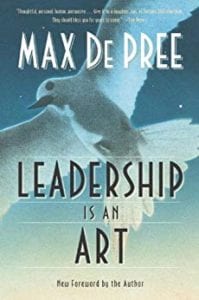
Leadership Is an Art
When I was going through the process, I wasn’t sure what I was going to do having owned this business for a long time. I, through the process, found myself loving IBM. I loved about IBM a lot of the same things that I always loved about Apple. I love being future-focused. I believe technology in the right hands with the right standards of ethics are for the good of society. I very much believed that IBM has an incredible history and touches us all every day in ways that we can’t even imagine, including the UPC code that’s on every one of our packages that we’re selling was invented by IBM. I remember one of the executives saying to me, “Nancy, if you have a client that needs to go to the moon, we can help them do that.” I was like, “That’s cool.” You don’t have a client that needs to go to the moon. Steve Jobs back to the 1984 thing taught us that IBM was the mortal enemy. There’s a very famous picture of Steve giving the finger to the IBM logo in New York and the logo of the office on Madison Avenue. If you google it, you’ll find it’s very funny. I wasn’t sure what I was going to do and what I have found is very surprising. I love Max De Pree. He wrote the book, Leadership Is an Art. He talks about the fact that leaders need to lead themselves. The first job of a leader is to state the truth. The last job is to say, “Thank you.” Within IBM, I find that leaders lead themselves.
I find it to be a highly entrepreneurial organization, if that makes any sense whatsoever. For people that need to be told what to do every step of the way, it’s not a good place to be. If you are one who thrives on ambiguity, are self-starters, can lead yourself, carve a path, make connections and make things happen, it’s a great place for you. I was very inspired by what has been built inside IBM and the amount of transformation, which we’ve talked a lot about. Nearly 70% of IBM is services. It is not the company that we used to think about. We are doing incredible digital reinvention for these clients. We were talking about, “The rate of change isn’t slowing down.” One of the advantages for doing the work we’re doing is that we have the services and the technology working hand-in-hand together. That’s a very unusual combination. Our global leader for services, a gentleman by the name of Mark Foster, spent the vast majority of his career at Accenture. He talks about the reason why he came out of retirement after five and a half years is because he felt as though this was in an exciting point in time to take a company like an IBM, who’s in the services space. Marrying it with that technology and doing it shoulder-to-shoulder in service to our clients. I have learned more in the last two and a half years than I had in the previous ten. It is an absolutely amazing ride. Are there things that suck? Absolutely, but I’m learning. For somebody who’s always been curious, I’m having a fantastic time.
Leading Yourself
Have you noted how many times she’s said curious between the people that she’s worked with and her own value system with that? Maybe I’m wrong, but I don’t think there are that many cultures left that are maybe truly industrialized that I would call paint by number of cultures. I would say to any person coming out of college that if you don’t know how to deal with inventing, ambiguity and creating things on the fly, you’re probably not going to thrive in this new world because we’ve got to be inventing. I also think it’s a world and tomorrow is an example of that, is what we’re going to do with speed dating with our startups. You’ve got to have these strategic partnerships outside of the company. That is how we’re learning and growing. Your whole path has been about that. You mentioned the whole leading yourself. You’re a very culturally-driven and people-driven leader. You mentioned Steve and all of his brilliant struggles in his early leadership days of seeing and valuing some of the people around him. How has that manifested for you? As you address leaders who are always working on their own leadership acumen, what would you tell them about mobilizing your organization and what’s important from the leading yourself standpoint?
In our business that’s filled with creative people and consulting people who are literally giving of themselves, it’s not a product business, it’s a service business. I’ve always felt as though my role is to be very much of a servant leader. I am in service. I am creating an environment and a culture for their creativity and their innovation to thrive. In my experience, what that requires is to create an environment that allows them to feel incredibly very safe. As a result, we feel safe when there’s transparency and there’s a level of openness. When leaders can demonstrate their own vulnerabilities and we all know we have many imperfections, that’s when that type of a culture of creativity and innovation can thrive. I am working on that with a number of different things inside IBM. They are very open to it. I have yet to be told no, which is amazing. I wrote my own job description and gave myself a title and they didn’t change a word.
Questions From The Community
That’s freedom to express yourself and your talents into the space. I do want to open it up to the group and find out if anyone has any questions specifically for Nancy about her experience whether it was the challenge of the 70% drop, the personal and professional implosion or it was the marriage with IBM or anything along the way that she’s learned.
If you don't know how to deal with ambiguity and creating things on the fly, you're probably not going to thrive in this new world. Share on XYou have a whole history of fortitude and survival. When you were mentioning the thing that was harsh about laying off these people, I thought the people who were laid off and treated generously, how much gratitude and how you impact their live versus even the people existing who probably trusted you even more. They would know how you would treat them. I’ve never seen anyone talk about that from your perspective or maybe it was harsh. In terms of connection and humankind or being nice to them, how do you reflect on that?
I had to be able to look myself in the mirror and that was also the litmus test for me when I decided to sell the company. I felt as though it was the right time. We needed to write the next chapter and it wasn’t going to be a company that I was going to pass down to my children, that they would get the benefit just because of the gene pool. I’m very much a student of conscious capitalism. I’ve always been very transparent and open with profits in our business and how they were distributed. All those principles that are put forth in that framework. Different people can express gratitude in different ways. Some of them perhaps you would like to as a leader when you did something that you didn’t have to wish maybe somebody might’ve said something or dropped you a note. I believe in karma. I have to first and foremost live with myself. If I can live with myself, then if I’m not living my values, how can I lead others? That’s the issue too. It all marinated in the culture, but there were times where I had maybe a little bit of hurt that people weren’t necessarily as expressive. Sometimes people have come back into the business and said, “I didn’t realize what I had until I left,” which is very gratifying. It’s very fulfilling.
Nancy, can you talk about what was the biggest challenge? All these things you spoke about of being transparent with profits and how they were distributed and everything else and the freedom to lead in that way. What was the biggest challenge going to a multinational organization where you no longer could make those quick calls?
Not having P&L or just not having responsibility for a P&L. That’s the way I navigated everything. That’s been the most challenging thing for me personally. I put myself in a position to not have anybody reporting to me. The person who was the executive sponsor of our acquisition is my boss, Paul Papas, who’s the Global Leader for IBM iX. I love Paul. He’s fabulous. The hardest thing for me is not having a P&L.
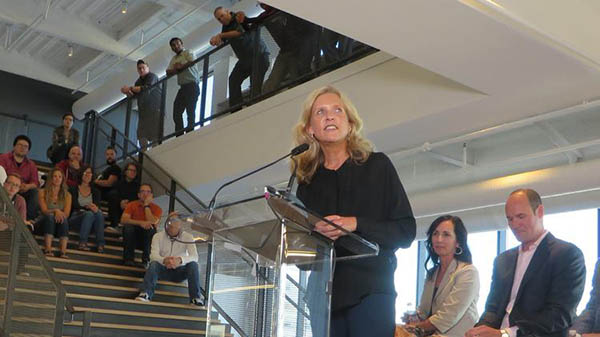
Brand Belonging: Sometimes, you have to let people go in order to grow.
Is that because all those decisions, the transparency and everything was based on, “This is good for the business?”
Yes, exactly.
Could you speak about why would IBM acquire an ad agency?
First of all, we were always focused in technology and technology marketing. We evolved to become one of the largest digital agencies and doing a tremendous amount of digital strategy experiences. Technology frameworks or technology platforms to enable those experiences, which is exactly what IBM iX does. Within IBM, there are 15,000 associates across nearly 40 studios that are doing digital strategy, experienced design and technology platform enablement. We are technology agnostic. There is no pressure whatsoever. The pressure is to do what’s best for our client. That’s the only rule. We are not in a position where we have to use IBM technology. We are very much like Accenture or Deloitte, etc. The Accentures and the Deloittes and the IBM iXs of the world have been gobbling up the agencies because there are different models. There are different models than a lot of the consulting companies. They’re primarily an inbound culture, which is very different than an outbound culture where people are at the location of the client’s business. The agencies have a very strong culture because they’re an inbound multidisciplinary team approach, which is different than a lot of the consultants. We were the first agency that IBM acquired. In the span of a week, they announced that they had acquired two others in Europe as well. This was a part of a strategy to kickstart their efforts in this area. It’s become a very strategically important part of IBM.
The last experience you had is what you expect the next place you go. Share on XOne of the things that’s super interesting that was very appealing to me is that IBM made the strategic decision about ten years ago as they were going through their own transformation that the future isn’t about technology. The future is about the human. The human is at the center of everything. IBM went to Stanford and said, “We want to commission our own version of design thinking that applies to our business. We acquired and created our own version of it and have trained over 125,000 people inside IBM on design thinking.” Everyone in the business, all 400,000 people, are encouraged to use design thinking to solve problems for clients. It’s interesting to think about the need to transform a workforce. People are coming to us to say, “How did you do this?” We’ve created an enterprise design thinking framework that we’re doing just that for some of our clients. This is a reality of where the world is going to an experienced-based economy, no longer a product-based economy that people need to work differently. They need to think differently. It doesn’t mean that everybody’s going to get thrown out. It means that we all have to develop new skills. We have to be lifelong learners. I feel very fortunate to be part of an organization that is investing very heavily on that.
I’m curious about something that you said, “IBM is not a product company, but they’re a service company.” Can you speak a bit more about what that means and also about the future of services within technology?
We have about $80 billion of revenue and nearly 70% of that revenue is from services. It’s technology services, wrap-around services and back-office services. We are the help desks for different organizations and those kinds of services, but we also have digital strategy and business strategy. IBM iX globally is about a $3 billion business. It’s all of those things. SAP S/4HANA implementation and those things. We have a huge partnership with Apple, which was one of the things that helped me over the hump with the IBM-Apple thing and helped all of our associates. We have a ton of IBM people inside Apple because Apple is a good B2C company. IBM is a good B2B company. Apple has always been very poor at selling into business and enterprise. That’s IBM’s strengths. We created a partnership where we’re developing mobile technology apps that are utilizing the Apple iOS to deploy to enterprise. We’re there, we help them develop the use cases. We help them be the distribution channel, the sales channel and the service channel. It’s a huge partnership. We’ve created over 350 unique applications for everyone from the airlines to oil companies to financial services. That’s yet another example of that.
Nancy, you are helping redefine creativity. For many people, the traditional definition of creativity is an ad agency comes with the campaign and it’s got clever headlines, script and beautiful art direction. Now it seems that we’re completely redefining creativity into completely new areas. Thanks to the work that you are doing. Would you agree with that?
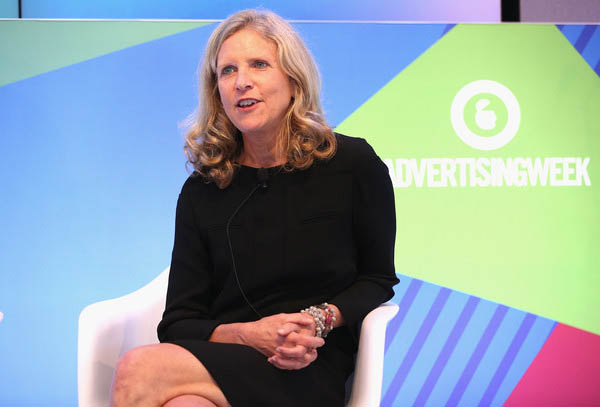
Brand Belonging: The future isn’t about technology. The future is about the human.
Nobody wants to be hit over the head with yet another ad or have a shoe follow you around on the internet. It’s super creepy. The way in which marketing and advertising is evolving, it’s very performance-based. It’s very data-based, but it also has to be very experience-based with the human at the center of it or else, we’re going to simply ignore it. We’re going to throw it out. IBM specifically has become a very performance-driven marketing organization under Michelle Peluso’s reign. The way in which we are marketing is very different. It’s another area that we’re sharing with clients because they see what we’ve been able to do that’s very different than the traditional way it has been done. We did a huge study about CMOs and what CMOs want. It’s about experience and wherever that experience might be. As we say inside IBM iX, “The last experience you had, no matter what the industry, no matter where it was is what you expect the next place you go.” If you had a lovely experience with Lyft and what that meant and how you were able to co-create, how this person is going to be ranked. I had this cool thing happened. I was in San Francisco and I gave a Lyft driver a three and they were on it like that. They sent me a note, “We’re sorry, Nancy Kramer, you had a less than desirable experience with Lyft. Here’s a $10 coupon.” It blew me away. I was like Lyft for life. That kind of personalization you can only get through data. That spoke to me in so many ways that a commercial or a digital ad would never speak to me. It spoke to me indirectly with the experience that I had. I was blown away.
You were talking about leading with a servant heart and it’s fascinating. It’s hard for me to even imagine the scale of IBM. How has that manifest itself and the way you look at it in being able to lead with a servant’s heart in an organization that’s that large?
For me personally, it all begins with listening. As we like to say, “God gave us two ears and one mouth for a reason.” I love talking to people and listening to them and getting into what makes them tick. Every person that I ever talked to these days, I’ll ask them, “What did you want to be when you grew up?” There are so much in that. Having that understanding and then creating an empathetic open-mindedness to that person. Where they are going to add the most value and be the most fulfilled personally, that’s in alignment. I love that agreement versus alignment. That is how it manifests. Trying to connect dots to where people fit, where they’re going to add the most value, where the company’s going to derive the most value for them. It’s been hard because some of the associates that I brought into this crazy experience, because there were about 350 of us, some people have had to say, “It’s just not for me.” It’s hard to see them go. I didn’t know it at the time. I did what I thought was best. Our values lined up. I felt as though it was the right opportunity. I felt as though it was right for our clients and our community, but it’s not for everybody. It’s hard, but I respect and appreciate their honesty. I don’t think any ill of them. It’s just life.
Important Links:
About Nancy Kramer

Apple, Brand Belonging, Chief Evangelist, IBM, leadership, Steve Jobs
I am the Chief Evangelist of IBM iX, as well as the Founder of Resource/Ammirati, a company I founded in 1981 with Apple Computer as our first client. Over the past 3+ decades, I have had the distinct pleasure to work with some of the most amazing people and organizations in the world.
Love the show? Subscribe, rate, review, and share!
Join The Coca-Cola CMO Leadership Summit Podcast community today: